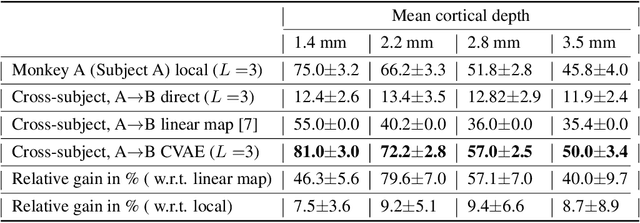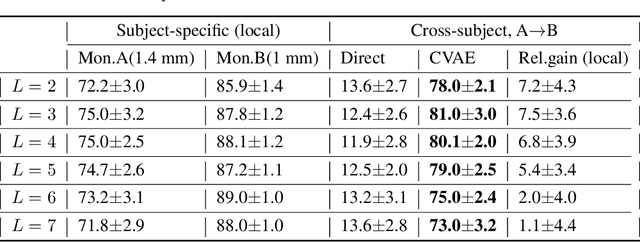Deep Cross-Subject Mapping of Neural Activity
Paper and Code
Jul 13, 2020



In this paper, we demonstrate that a neural decoder trained on neural activity signals of one subject can be used to \textit{robustly} decode the motor intentions of a different subject with high reliability. This is achieved in spite of the non-stationary nature of neural activity signals and the subject-specific variations of the recording conditions. Our proposed algorithm for cross-subject mapping of neural activity is based on deep conditional generative models. We verify the results on an experimental data set in which two macaque monkeys perform memory-guided visual saccades to one of eight target locations.
* Submitted to NeurIPS 2020: (15 pages, 7 figures, 5 tables)
 Add to Chrome
Add to Chrome Add to Firefox
Add to Firefox Add to Edge
Add to Edge